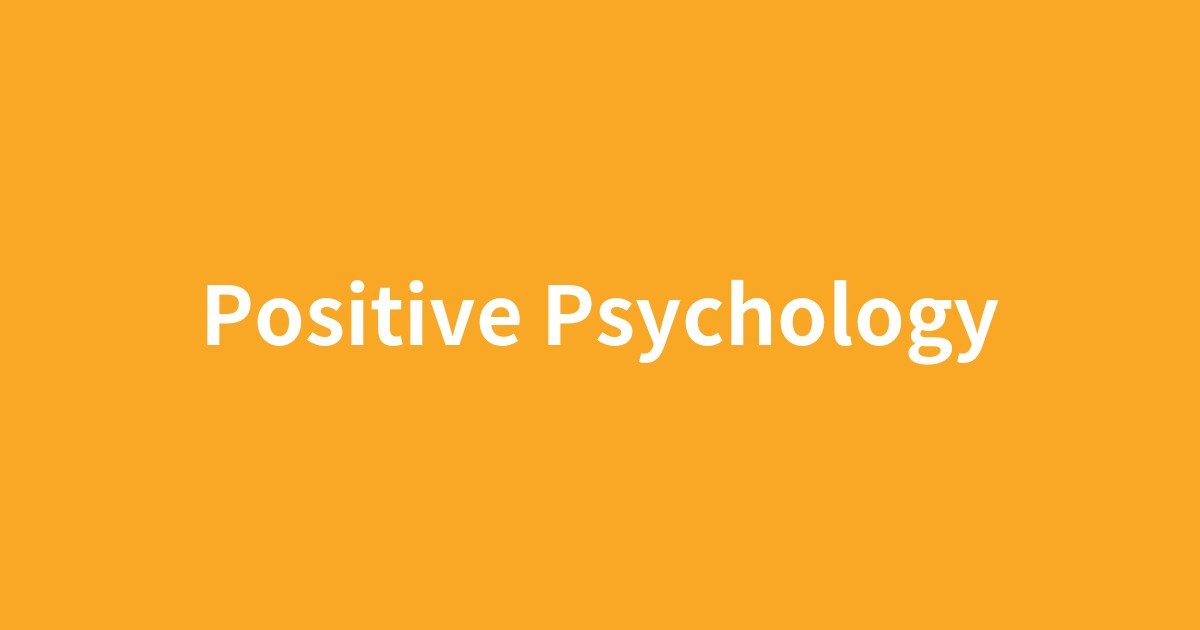このページは、歴史や文化の物語を楽しみながら、その文脈の中で重要な英単語を自然に学ぶための学習コンテンツです。各セクションの下にあるボタンで、いつでも日本語と英語を切り替えることができます。背景知識を日本語で学んだ後、英語の本文を読むことで、より深い理解と語彙力の向上を目指します。

【ご注意】
この記事には、健康、金融、法律など、読者の人生に大きな影響を与える可能性のある情報が含まれています。内容は一般的な情報提供を目的としており、専門的なアドバイスに代わるものではありません。重要な判断を下す前には、必ず資格を持つ専門家にご相談ください。
病気や問題ではなく、人間の強みや幸福(ウェルビーイング)に焦点を当てる新しい心理学の流れ。より良い人生を送るためのapproach(方法)。
この記事で抑えるべきポイント
- ✓ポジティブ心理学は、従来の心理学が心の病などのマイナス状態をゼロに戻すことを目指したのに対し、人間の「強み」や「幸福(well-being)」といったプラスの側面に焦点を当て、ゼロからプラスの状態を目指す新しい学問領域であるという点。
- ✓1998年にマーティン・セリグマンによって提唱され、幸福を構成する具体的な要素として「PERMAモデル」(ポジティブ感情、没頭、人間関係、意味・意義、達成感)などを提示し、科学的な測定と分析を試みている点。
- ✓時間を忘れて没頭する「フロー体験」や、個人の資質である「強み(strengths)」の発見と活用など、人々がより良い人生を送るための具体的なアプローチ(approach)を提供する、実践的な側面を持っている点。
- ✓単なる「ポジティブシンキング」や楽観主義とは異なり、科学的根拠に基づいています。一方で、文化的な普遍性やネガティブな感情が持つ役割については、様々な議論や批判的な視点も存在するという多面性。
「心理学」の新しいかたち
「心理学」と聞くと、心の病やトラウマの治療を思い浮かべるかもしれません。しかし、もし「幸福になる方法」を科学的に研究する心理学があるとしたらどうでしょう。本記事では、人間の「強み」や「幸福」に光を当てる新しい潮流、ポジティブ心理学の世界を探求し、私たちの人生にどのようなヒントを与えてくれるのかを紐解きます。
A New Form of 'Psychology'
When you hear the word "psychology," you might think of treating mental illness or trauma. But what if there were a field of psychology that scientifically studies how to become happier? This article explores the world of positive psychology, a new trend that shines a light on human strengths and happiness, and unravels the hints it can offer for our lives.
「病理」から「幸福」へ ― 心理学のパラダイムシフト
20世紀までの心理学は、主にうつ病や不安障害といった精神疾患の研究にその力を注いできました。いわば、マイナスの状態にある心を、なんとかゼロの平常な状態に戻すことが大きな目標でした。しかし、1998年、当時アメリカ心理学会の会長であったマーティン・セリグマンは、この潮流に一石を投じます。「人間はただ問題がない状態を目指すだけではないはずだ」と。彼は、人間が本来持つ「強み(strength)」や、時代や文化を超えて尊ばれる「美徳(virtue)」といったポジティブな側面に光を当てることの重要性を提唱しました。困難な状況から立ち直る心の力、すなわち「回復力(resilience)」を育むことも含め、病理の治療だけでなく、人がより良く生きるための学問――それがポジティブ心理学の誕生でした。
From 'Pathology' to 'Happiness' — A Paradigm Shift in Psychology
Until the 20th century, psychology primarily focused its efforts on studying mental illnesses like depression and anxiety disorders. In other words, its main goal was to bring a mind from a negative state back to a neutral, normal state. However, in 1998, Martin Seligman, then president of the American Psychological Association, challenged this trend. "Humans must not only aim for a state of no problems," he argued. He advocated for the importance of highlighting the positive aspects inherent in humans, such as their strength and the virtue that is valued across time and cultures. Including fostering the mental power to recover from difficult situations, known as resilience, the study of not just treating pathology but also of how people can live better lives—this was the birth of positive psychology.
幸福を構成する5つの要素「PERMAモデル」
では、ポジティブ心理学は「幸福」をどのように捉えるのでしょうか。その中心にあるのが、セリグマンが提唱した「PERMAモデル」です。これは、持続的な「幸福感(well-being)」が5つの要素から構成されるという理論です。一つ目はPositive Emotion(ポジティブ感情)。日々の喜びや感謝、希望といった感情です。二つ目は「没頭(engagement)」。趣味や仕事に夢中になり、我を忘れるような状態を指します。三つ目はRelationships(人間関係)。他者との良好で支え合える関係は、幸福に不可欠です。四つ目はMeaning(意味・意義)。自分の人生が何か大きなものに貢献しているという感覚。そして五つ目が「達成感(accomplishment)」。目標に向かって努力し、それを成し遂げる経験です。これら5つの柱が、私たちの人生を豊かに彩るのです。
The Five Elements of Happiness: The 'PERMA Model'
So, how does positive psychology define "happiness"? At its core is the "PERMA model" proposed by Seligman. This theory posits that sustained well-being is composed of five elements. The first is Positive Emotion: feelings of joy, gratitude, and hope in daily life. The second is engagement: a state of being absorbed in hobbies or work, losing oneself in the activity. The third is Relationships: good, supportive connections with others are essential for happiness. The fourth is Meaning: the sense that one's life contributes to something larger than oneself. And the fifth is accomplishment: the experience of setting and achieving goals. These five pillars enrich and color our lives.
フロー体験と「強み」の発見
PERMAモデルの「没頭」と深く関わるのが、心理学者ミハイ・チクセントミハイが提唱した「フロー体験(flow)」です。これは、何かに完全に集中し、時間感覚がなくなるほどの没入状態を指します。アスリートがゾーンに入る感覚や、アーティストが創作に没頭する姿を想像すると分かりやすいかもしれません。ポジティブ心理学では、この「フロー体験(flow)」は、人が自らの「強み(strengths)」を最大限に活かしている時に生じやすいと考えられています。自分の「強み(strengths)」を知り、それを意識的に使うことは、幸福感を高めるための極めて有効な「取り組み方(approach)」なのです。例えば、自分の強みが「創造性」だと分かれば、仕事で新しい企画を立てたり、休日に料理やDIYに挑戦したりすることで、充実感を得られるでしょう。
Discovering 'Flow' and 'Strengths'
Deeply connected to the 'engagement' aspect of the PERMA model is the concept of flow, proposed by psychologist Mihaly Csikszentmihalyi. This refers to a state of complete concentration on an activity, to the point of losing track of time. It's easy to imagine this by thinking of an athlete in the zone or an artist engrossed in their creation. In positive psychology, this flow experience is thought to occur most often when a person is utilizing their strengths to the fullest. Discovering your strengths and consciously using them is an extremely effective approach to enhancing happiness. For example, if you realize your strength is "creativity," you can find fulfillment by creating new projects at work or trying cooking or DIY on your days off.
ポジティブ心理学への多角的な視点
ポジティブ心理学は、しばしば単なる「楽観主義(optimism)」と混同されることがあります。しかし両者は明確に異なります。ポジティブ心理学は、根拠なく「きっとうまくいく」と考えるのではなく、現実を直視し、自らの行動によって未来を切り拓けると信じる「学習された楽観主義」を重視します。これは科学的データに基づいたアプローチです。一方で、この学問に対する批判的な視点も存在します。例えば、幸福の尺度が西洋的な価値観に偏っているのではないかという指摘や、怒りや悲しみといったネガティブな感情が持つ、危険を知らせたり、行動を促したりする重要な役割を軽視しているのではないか、といった議論です。こうした多角的な視点を持つことで、私たちはポジティブ心理学をより深く理解することができます。
A Multifaceted Perspective on Positive Psychology
Positive psychology is often confused with simple optimism. However, the two are distinctly different. Positive psychology does not advocate for baselessly thinking "everything will be fine," but rather emphasizes a "learned optimism" that involves facing reality and believing that one can shape a better future through one's own actions. This is an approach based on scientific data. On the other hand, there are also critical perspectives on this field. For instance, some point out that the measures of happiness may be biased towards Western values, or that it may overlook the important roles of negative emotions like anger and sadness, which can signal danger or motivate action. Having these multifaceted perspectives allows us to understand positive psychology more deeply.
結論
ポジティブ心理学は、私たちに新しい視点を提供してくれます。それは、幸福が運命や偶然によって与えられるものではなく、日々の意識的な選択と実践によって育むことができる、ということです。この学問が提示する様々な「取り組み方(approach)」は、個人の人生を豊かにするだけでなく、教育現場における子供たちの自己肯定感の育成や、企業における従業員の「幸福感(well-being)」向上など、社会全体のあり方にも大きな影響を与える可能性を秘めています。この記事をきっかけに、あなた自身の幸福について、科学の光を当てて見つめ直してみてはいかがでしょうか。
Conclusion
Positive psychology offers us a new perspective: that happiness is not something given by fate or chance, but something that can be cultivated through conscious choices and practices. The various approaches presented by this field have the potential not only to enrich individual lives but also to have a significant impact on society as a whole, such as fostering self-esteem in children in educational settings and improving employee well-being in corporations. We hope this article serves as an opportunity for you to re-examine your own happiness in the light of science.